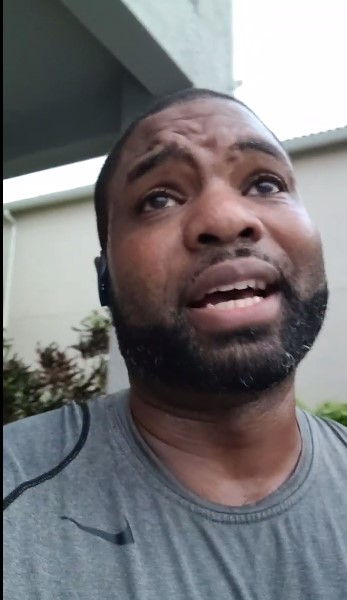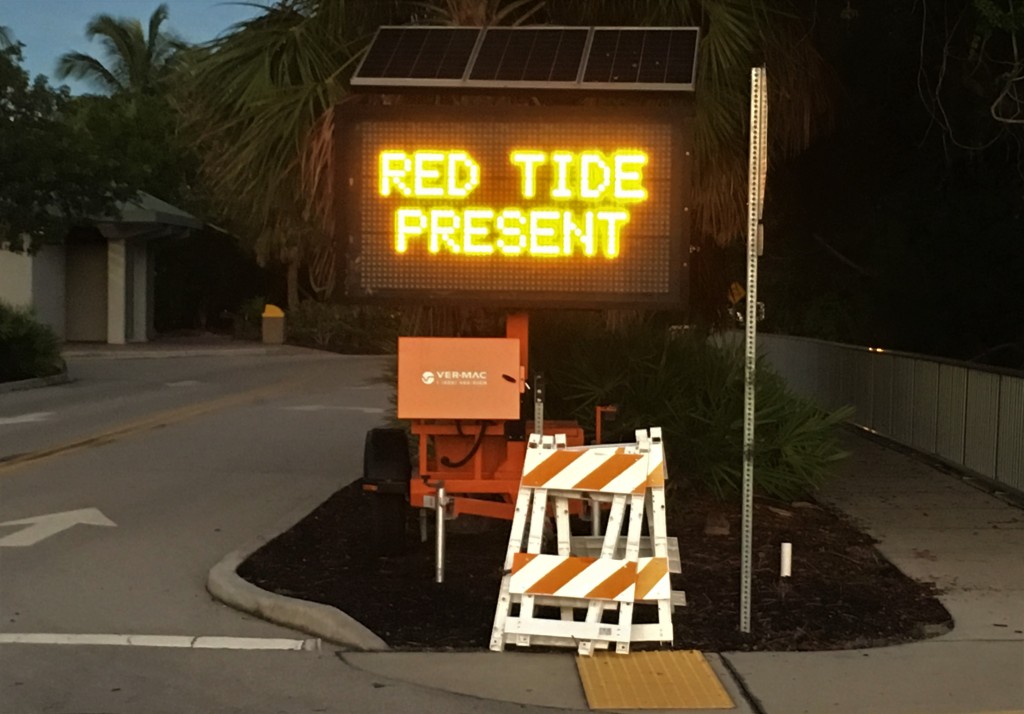Alfie Oakes: Teachers should be “taken down” by “force”

Oct. 26, 2021 by David Silverberg
Tensions surrounding school board decisions, masking and curriculum, already at a high pitch, are likely to become even more pronounced in the weeks ahead as new child COVID vaccines become available and are mandated for school use.
The possibility of violence and past intimidation and harassment of school officials has prompted federal law enforcement intervention, leading to state and local pushback.
Southwest Florida is already in the grip of these stresses and challenges. Passions have run high at local school board meetings over the past year, with disruptions, disorderly conduct and protests.
To date there has not been any school-related violence in Southwest Florida. However, there has been at least one local, politically-motivated overt call to use “force” against teachers.
On Aug. 16 Francis Alfred “Alfie” Oakes III, an extreme right-wing grower and grocer, posted on Facebook: “These corrupt teachers unions are the enemy of our country and our citizens! We need to take them down by force!! ALL enemies foreign and domestic !!! Time for a revolution!”
On Aug. 20 Oakes told a conservative gathering in Naples that he had a sufficient number of guns to arm all his 3,200 employees. While no illegal actions have been publicly apparent to date, his call to “take [teachers] down by force” could inspire other school opponents to use violence.
The simmering summer
After a summer of rising tension and threats directed at elected school board members, along with a spike in the COVID-19 Delta variant, on Sept. 29, Viola Garcia, president of the National School Boards Association (NSBA), and Chip Slaven, its interim executive director, sent a five-page letter to President Joe Biden, detailing the danger.
“America’s public schools and its education leaders are under an immediate threat. The National School Boards Association (NSBA) respectfully asks for federal law enforcement and other assistance to deal with the growing number of threats of violence and acts of intimidation occurring across the nation,” it stated.
“Local school board members want to hear from their communities on important issues and that must be at the forefront of good school board governance and promotion of free speech,” it continued. “However, there also must be safeguards in place to protect public schools and dedicated education leaders as they do their jobs.”
The letter provided extensive examples of harassment and threats in its body and footnotes.
On Oct. 4 Attorney General Merrick Garland responded with a public memorandum.
“Threats against public servants are not only illegal, they run counter to our nation’s core values,” he wrote. “Those who dedicate their time and energy to ensuring that our children receive a proper education in a safe environment deserve to be able to do their work without fear for their safety.” (The full text of the memo is at the end of this article.)
Based on the danger to teachers and school board members, Garland ordered agents from the Federal Bureau of Investigation (FBI) and US attorneys to begin meeting with law enforcement agencies at all levels to discuss strategies for dealing with the danger. “These sessions will open dedicated lines of communication for threat reporting, assessment and response by law enforcement,” he stated.
Garland’s memorandum was interpreted by Republicans, grass roots conservatives and the right-wing media as an assault on parents’ rights and free speech, potentially labeling parents “domestic terrorists.”
This was the line of attack opened by Republican members of Congress when Garland testified before the House Judiciary Committee this past Thursday, Oct. 21. The hearing’s official topic was the investigation of the Jan. 6 insurrection but it examined a broad range of subjects.
Garland defended his memo.
“Parents have been complaining about the education of their children and about school boards since there were such things as school boards and public education,” he told the lawmakers. “This is totally protected by the First Amendment. True threats of violence are not protected by the First Amendment. Those are the things we are worried about here. Those are the only things we are worried about here. We are not investigating peaceful protests or parent involvement in school board meetings. There is no precedent for doing that and we would never do that. We are only concerned about violence and threats of violence against school administrators, teachers, staff.”
Republicans on the panel, however, used the opportunity to unleash their grievances and attack the memo. Rep. Jim Jordan (R-4-Ohio), the ranking member on the panel, delivered a vociferous opening statement accusing Garland and the FBI of selectively targeting parents, while ignoring Republican priorities like violent crime and border security.
Garland, said Jordan, had opened “a snitch line on parents, started five days after a left wing political organization asked for it. If that’s not political, I don’t know what is.”
(Southwest Florida Rep. Greg Steube (R-17-Fla.), who sits on the panel, used his question to ask Garland if the Department of Justice was pursuing environmental protesters at the Department of the Interior with the same vigor as the Jan. 6 insurrectionists. Garland said he was unfamiliar with the incident Steube was mentioning.)
In Florida, Gov. Ron DeSantis (R) declared that the state would not cooperate with the FBI.
“We’re not going to be cooperating with any types of federal investigations into parents,” he said at a press conference in Titusville last Wednesday, Oct. 20. “And we’ll do whatever we can to thwart such investigations.” He accused Garland and President Joe Biden of pulling a political stunt to “intimidate parents” and “squelch dissent” and called a memo a “slap in the face” to Florida and other local law enforcement officers.
“They don’t need to have their hand held by federal agents over basic law enforcement,” he said. “At the state level, we will be not facilitating or participating in any of the things that were outlined in that memo, because it’s just not appropriate to do that.”
Trouble in paradise
In an essay published on Oct. 20 in The Washington Post: “I’m a Florida school board member. This is how protesters come after me,” Brevard County school board member Jennifer Jenkins related how protesters opposing school curriculum demonstrated at her house, how a state representative gave out her private cell phone number and encouraged harassing phone calls, and how her lawn was vandalized, among other forms of threats.
She wrote: “I ran for the school board last year because I was concerned about issues such as teacher pay, student equity and, oh yeah, the coronavirus. As a progressive in a red county, I expected to be a target of conservatives; I did not expect to be called a Nazi and a pedophile and to be subjected to months of threats, harassment and intimidation.”
On the west coast of Florida, specifically in Lee and Collier counties, there has not been the same level of threat against school boards, teachers or staff. Nonetheless, in the spring, school board meetings were the scene of intense debate and at times disruption.
Issues included mask mandates, curriculum, school textbooks and especially the teaching of critical race theory, an educational concept that emphasizes the importance of racial relations in American history.
In March the Collier County school board chambers had to be cleared when anti-mask parents insisted on removing their masks in defiance of board rules.
In June, the Collier County school board was again the scene of disruptions as the board discussed school textbook purchases and anti-curriculum attendees disrupted proceedings.

During that meeting on June 7 Alfie Oakes was escorted out of the chambers after he refused to respect the rules governing discussion while accusing the board of planning to purchase $6 million worth of what he called “books and materials that are laden with critical race theory and other strictly liberal viewpoints.”
The pandemic and the issues of masking in school led to protests and demonstrations in the spring. However, with the COVID Delta variant outbreak in the summer and especially as schools prepared to open in August, passions reached a new pitch.
In August there were shoving incidents outside the Lee County School Board headquarters before a meeting to discuss a school mask mandate. Although the Lee County Board imposed a 30-day mandate for September, a mid-month court ruling forced the school system to provide exemptions.
It was also in August, in the midst of the Delta spike, that Alfie Oakes issued his call for the use of “force” against teachers.
In October the Lee County school board discussed an armed guardian program, training armed teachers and school security officers to prevent school shootings from any source.
Commentary: From angry August to nasty November
School-related tensions are likely to rise substantially in the coming weeks when COVID vaccines are fully approved and distributed for children from ages 5 to 12.
Schools have mandated a variety of vaccines for decades but given the level of resistance and politicization surrounding the COVID vaccine, quite an eruption can be expected when schools try to require the latest protection.
School board members, teachers and staff will need extensive physical protection and they should start preparing now—even if they don’t impose mandates.
In this context, Attorney General Garland’s memo directing federal, state and local coordination and strategizing is a reasonable, lawful, and sensible effort to protect elected school board officials and staff from attacks of all kinds. As Garland himself stated, and as the memo itself states, it is only directed against unlawful threats. It does not infringe on parents’ rights, of free speech or anything else, and it does not designate them as “domestic terrorists.”
In fact, Garland would be remiss if he did not take such actions.
Of course, Florida, led by an ambitious and determinedly Trumpist governor has already established itself as an outlier. DeSantis has shown himself driven to fight all COVID protections of all sorts, at all levels and for all ages. He picked a pliant Surgeon General in Joseph Ladapo, who simply provides any and all justifications DeSantis requires for his desired electoral results. His administration has concealed the real statistics for COVID, especially the Delta variant, to minimize the toll his policies have taken on Floridians.
At the grassroots level the anti-mask, anti-vaccine, anti-science, anti-curriculum—in fact, anti-learning—movement seems aimed more at imposing its own version of the indoctrination it claims to decry than the education it purports to uphold. It is aided and abetted in this by the right-wing media outrage machine, which is twisting any science-based, or law enforcement measure into an assault on parental authority and individual freedom.
In a broader sense what the anti-learning, anti-protection activists seem intent on doing is creating a parallel universe in classrooms where COVID either doesn’t exist or can be ignored, where American history is literally whitewashed and where comfortable delusions—like the Big Lie—can be taught as fact and take hold for generations to come.
If it succeeds, Southwest Florida will not be spared its results any more than other corner of the country.
In the days ahead, those who do love democracy, learning and wish to protect the lives of schoolchildren will have to show themselves more committed, more mobilized and more dedicated than those who seek to put their lives and learning at risk.
The next regular meeting of the Lee County School Board is scheduled for Tuesday, Nov. 2 at 6:00 pm at the Lee County Public Education Center, 2855 Colonial Blvd., Fort Myers, Fla.
The next regular meeting of the Collier County School Board is scheduled for Tuesday, Dec. 7 at 4:00 pm at the Dr. Martin Luther King, Jr., Administrative Center, 5775 Osceola Trail. Naples, Fla.
Full text of the 1-page Oct. 4 memorandum from Attorney General Merrick Garland to law enforcement agencies.

Liberty lives in light
© 2021 by David Silverberg












